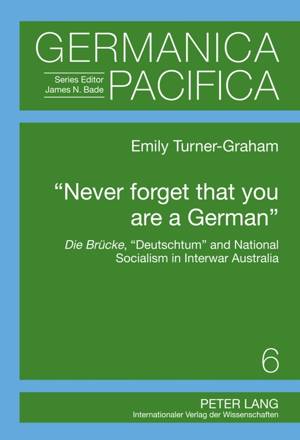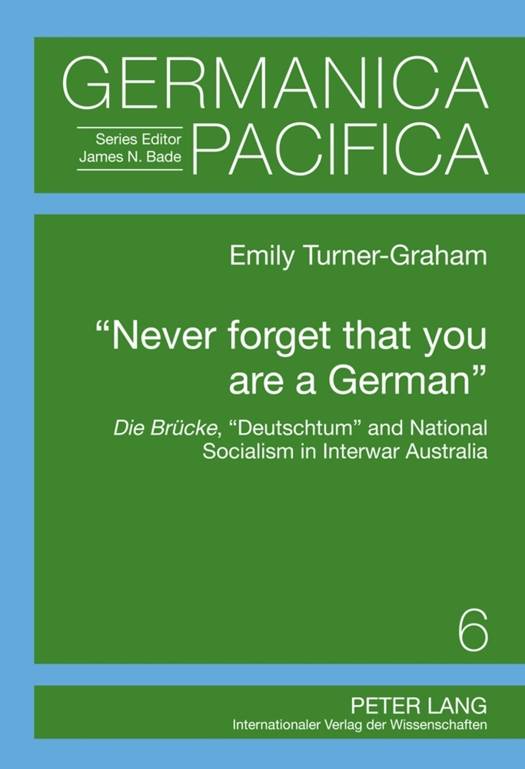
Door een staking bij bpost kan je online bestelling op dit moment iets langer onderweg zijn dan voorzien. Dringend iets nodig? Onze winkels ontvangen jou met open armen!
- Afhalen na 1 uur in een winkel met voorraad
- Gratis thuislevering in België vanaf € 30
- Ruim aanbod met 7 miljoen producten
Door een staking bij bpost kan je online bestelling op dit moment iets langer onderweg zijn dan voorzien. Dringend iets nodig? Onze winkels ontvangen jou met open armen!
- Afhalen na 1 uur in een winkel met voorraad
- Gratis thuislevering in België vanaf € 30
- Ruim aanbod met 7 miljoen producten
Zoeken
Omschrijving
This book is the first detailed cultural study of Nazi ideology as it was presented to the interwar Australian public, most particularly its German-Australian population. The newspaper Die Brücke (The Bridge) was launched in Sydney in 1934. It was the brainchild of the League of Germans in Australia and New Zealand and the German-Australian Chamber of Commerce. «Deutschtum» (Germanness) was at the heart of its mission, as it was at the heart of National Socialism itself. The question of how Germanness could be defined was at the core of German political and social debate long before Germany's national formation, and only intensified following it. National Socialism provided a new means of defining «Deutschtum». Die Brücke, seeking to lead a renewed embrace of Germanness among members of the German-Australian community, hoped that German identity would be exhumed from its perceived anglicised entombment by wholly adopting a Nazi understanding of German self. As such, Die Brücke was partially funded by Germany's Nazi government. Die Brücke's publication represents the most significant statement made in Australia of a nazified «Deutschtum» and a challenge to the idea that Nazism was «not for export».
Specificaties
Betrokkenen
- Auteur(s):
- Uitgeverij:
Inhoud
- Aantal bladzijden:
- 297
- Taal:
- Engels
- Reeks:
- Reeksnummer:
- nr. 6
Eigenschappen
- Productcode (EAN):
- 9783631605240
- Verschijningsdatum:
- 26/08/2011
- Uitvoering:
- Hardcover
- Formaat:
- Genaaid
- Afmetingen:
- 148 mm x 210 mm
- Gewicht:
- 499 g

Alleen bij Standaard Boekhandel
+ 156 punten op je klantenkaart van Standaard Boekhandel
Beoordelingen
We publiceren alleen reviews die voldoen aan de voorwaarden voor reviews. Bekijk onze voorwaarden voor reviews.











